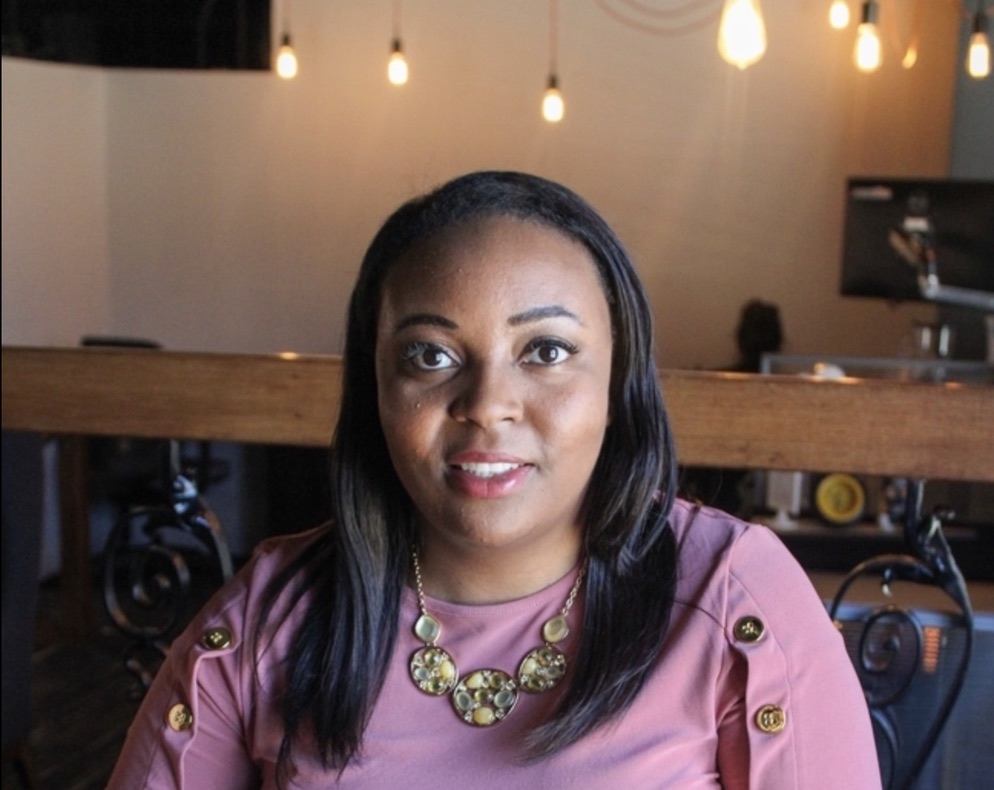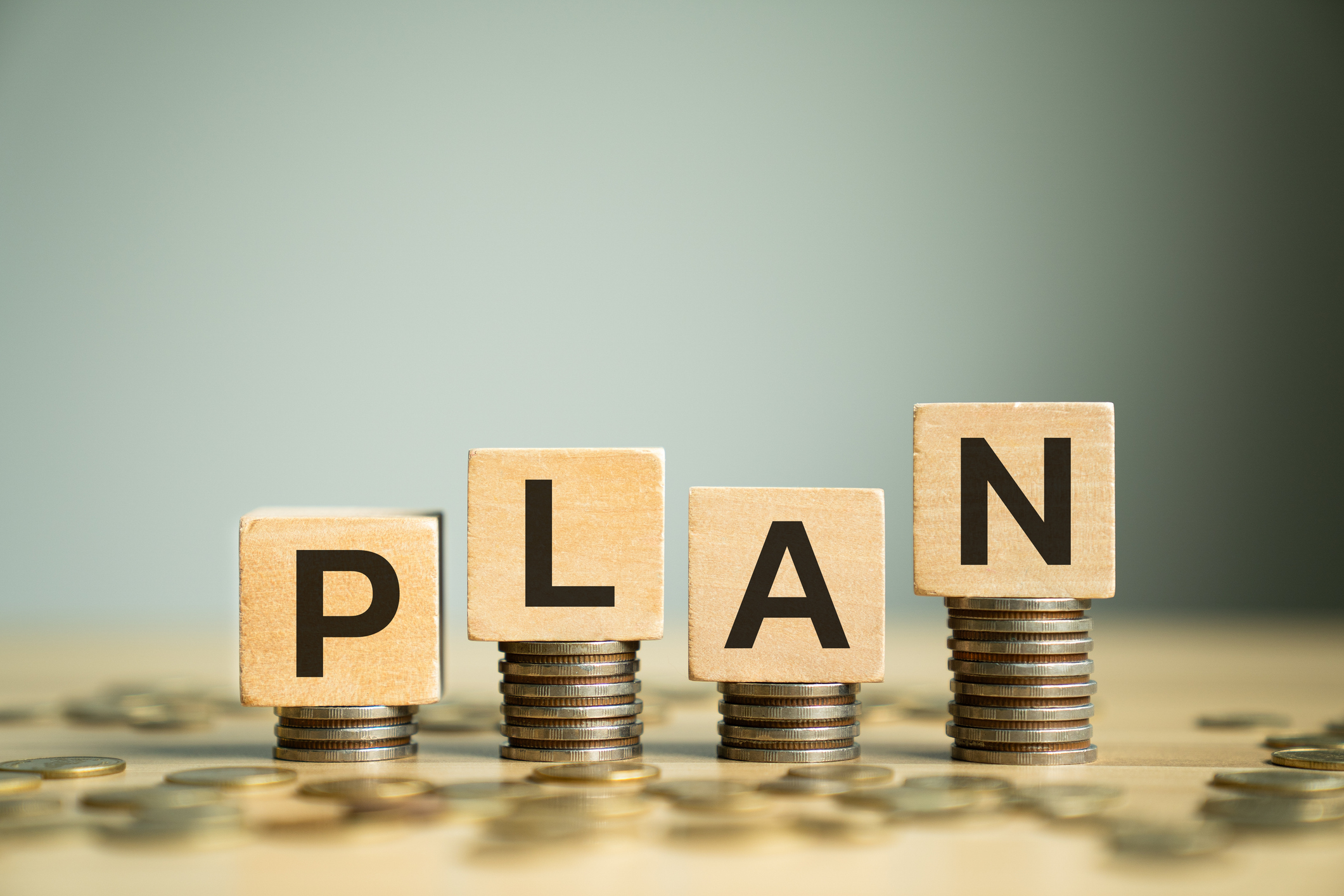Is Your Money in the Wrong Place? Why More Savers Are Shifting Money Away from Big Banks
Traditional savings accounts aren’t cutting it — here’s where the money is going instead.

Profit and prosper with the best of Kiplinger's advice on investing, taxes, retirement, personal finance and much more. Delivered daily. Enter your email in the box and click Sign Me Up.
You are now subscribed
Your newsletter sign-up was successful
Want to add more newsletters?
If you've been feeling underwhelmed by your bank account's interest earnings, you're not alone.
Many Americans are re-evaluating where they keep their cash, shifting away from traditional checking and savings accounts in search of better returns.
Consumers are increasingly moving money into higher-yield options such as money market funds, brokerage accounts and online savings platforms that offer more competitive rates.
From just $107.88 $24.99 for Kiplinger Personal Finance
Become a smarter, better informed investor. Subscribe from just $107.88 $24.99, plus get up to 4 Special Issues

Sign up for Kiplinger’s Free Newsletters
Profit and prosper with the best of expert advice on investing, taxes, retirement, personal finance and more - straight to your e-mail.
Profit and prosper with the best of expert advice - straight to your e-mail.
While cash reserves remain strong overall, savers are becoming more strategic — transferring excess funds into accounts that can keep pace with inflation, even if it means taking on more risk.
With interest rates still elevated and the Federal Reserve's next policy meeting approaching, this shift might reflect a broader rethinking of savings strategies and long-term financial security.
Let's explore why more savers are making the switch and what they’re choosing instead.
Why more savers are shifting from passive to active strategies
According to the JPMorgan Chase Institute’s latest Household Finance Pulse, which draws on data from 4.7 million Chase households, cash held in higher-yield financial vehicles has been steadily increasing — even among lower-income earners.
The analysis shows that households earning less than $35,000 per year saw total cash balances grow at an average annual rate of 5% to 6%.
These savers are increasingly shifting their money into more rewarding accounts, signaling a broader awareness of how to protect and grow savings in today’s high-interest-rate environment.
The findings suggest that while Americans are still holding onto cash, they’re also being more strategic, moving it to places where it can work harder.
How interest rates and inflation are pushing savers to act
Higher interest rates
The Federal Reserve’s rate hikes have made it more attractive to move money out of traditional savings and checking accounts. While many banks still offer low yields of 0.01% to 0.10% on standard savings, money market accounts and CDs are delivering returns north of 4% in some cases.
Beating inflation
Persistent inflation has led many consumers to question whether their money is truly “safe” if it’s losing value over time. Moving cash into investment income accounts is a way to preserve and potentially grow your purchasing power in the future.
More financial savvy
After years of financial uncertainty, Americans are becoming more intentional with how they manage money. Budgeting apps, online financial tools and social media education have contributed to a more informed and empowered saver.
Explore and compare some of today's best savings options with the tool below, powered by Bankrate:
Where savers are putting their cash for better returns
The most popular alternatives to traditional bank deposits include some of these options:
- Money market funds: Offering both liquidity and competitive yields, these funds are increasingly popular for storing emergency savings and short-term cash.
- Brokerage accounts: With access to ETFs, dividend stocks and bonds, brokerage accounts offer a path to longer-term investment income, though they come with market risk.
- Certificates of deposit (CDs): CDs are safe and predictable, but they lack flexibility if you need funds early, since there’s often an early withdrawal penalty if you need to access funds before the CD’s maturity date.
- High-yield savings accounts (HYSAs): Online banks are currently offering rates upward of 4%, which is significantly higher than what most brick-and-mortar institutions provide.
Pros and cons of moving money to higher-yield accounts

Shifting your savings into investment or high-yield accounts can offer clear benefits — but it’s not without tradeoffs. Here are some pros and cons to consider.
Pros:
- Significantly higher yields: Moving cash out of a traditional checking account and into a high-yield alternative can significantly improve your earning potential.
- Opportunity to stay ahead of inflation: With inflation eating away at purchasing power and interest rates remaining relatively high, people want to do more than let their money sit.
- Incentive to build longer-term financial plans: Whether you want to grow your retirement savings or ensure your financial stability a few years down the road, moving money to high-yield savings or investments could help with your long-term plans.
Cons:
- Market volatility for brokerage accounts: The market fluctuates, and not every investment is a guaranteed win.
- Lack of FDIC insurance in some investment vehicles: Investment-based accounts such as brokerage accounts or even money market mutual funds are not FDIC insured, which means you could lose money during a market downturn.
- Limited liquidity with CDs or certain investment funds: Even with more stable options such as CDs, you’ll face penalties if you withdraw your funds early.
What this says about the economy
The data suggest that this movement reflects growing consumer confidence or at least a willingness to engage more proactively with financial tools.
While some Americans are still cautious, the shift points to a desire to not just save money, but to make it work harder.
That said, total cash reserves haven’t disappeared; they’re simply being reallocated. This indicates that consumers still value liquidity, especially during uncertainty about interest rate policy, inflation and global market trends.
Should you move your cash for better returns?
That depends on your financial goals, risk tolerance and how much effort you're willing to put into optimizing your savings. If your current savings account is earning less than 1%, it's worth shopping around.
Many online banks and credit unions offer far more competitive rates with no monthly fees or minimums. If you're sitting on extra cash beyond your emergency fund, consider putting some into a short-term CD or a high-yield money market fund to capitalize on current rates.
It’s also important to consider your timeline. If you’re saving for a big purchase in the next year or two, liquidity matters. In that case, a HYSA or money market account might be best.
If you’re saving for a long-term goal such as retirement, moving excess funds into a diversified brokerage account could make sense if you're prepared for some market fluctuation.
Lastly, think about how comfortable you are with risk. Not every option offers guaranteed returns.
Before moving money around, make sure your emergency fund is intact, and your financial basics are covered. From there, you can start optimizing for yield.
Related Content
Profit and prosper with the best of Kiplinger's advice on investing, taxes, retirement, personal finance and much more. Delivered daily. Enter your email in the box and click Sign Me Up.

Choncé is a personal finance freelance writer who enjoys writing about eCommerce, savings, banking, credit cards, and insurance. Having a background in journalism, she decided to dive deep into the world of content writing in 2013 after noticing many publications transitioning to digital formats. She has more than 10 years of experience writing content and graduated from Northern Illinois University.
-
 Why Some Michigan Tax Refunds Are Taking Longer Than Usual This Year
Why Some Michigan Tax Refunds Are Taking Longer Than Usual This YearState Taxes If your Michigan tax refund hasn’t arrived, you’re not alone. Here’s what "pending manual review" means and how to verify your identity if needed.
-
 If You'd Put $1,000 Into Caterpillar Stock 20 Years Ago, Here's What You'd Have Today
If You'd Put $1,000 Into Caterpillar Stock 20 Years Ago, Here's What You'd Have TodayCaterpillar stock has been a remarkably resilient market beater for a very long time.
-
 Good Stock Picking Gives This Primecap Odyssey Fund a Lift
Good Stock Picking Gives This Primecap Odyssey Fund a LiftOutsize exposure to an outperforming tech stock and a pair of drugmakers have boosted recent returns for the Primecap Odyssey Growth Fund.
-
 How Much Savings Do You Actually Need to Feel Financially Secure? Start With These 3 Benchmarks
How Much Savings Do You Actually Need to Feel Financially Secure? Start With These 3 BenchmarksFrom your first $1,000 cushion to a full emergency fund, here's how to build savings in stages and why each level matters.
-
 The Wealth-Building Roadmap That Works at Any Age
The Wealth-Building Roadmap That Works at Any AgeA phase-based approach tied to your finances — not your birth year — can help you build wealth whether you’re just starting out or catching up.
-
 The Best Short-Term CD for Your Cash in 2026
The Best Short-Term CD for Your Cash in 2026This strategy can help you earn thousands in months.
-
 Are You Making These 3 Savings Mistakes?
Are You Making These 3 Savings Mistakes?Avoiding these common mistakes can help you build a foundation of wealth while not leaving thousands of dollars on the table.
-
 My Spouse and I Are Saving Money for a Down Payment on a House. Which Savings Account is the Best Way to Reach Our Goal?
My Spouse and I Are Saving Money for a Down Payment on a House. Which Savings Account is the Best Way to Reach Our Goal?Learn how timing matters when it comes to choosing the right account.
-
 How to Budget as a Couple Without Fighting About Money
How to Budget as a Couple Without Fighting About MoneyThese tips will help you get on the same page to achieve your financial goals, with minimal drama.
-
 3 Reasons to Use a 5-Year CD As You Approach Retirement
3 Reasons to Use a 5-Year CD As You Approach RetirementA five-year CD can help you reach other milestones as you approach retirement.
-
 4 Psychological Tricks to Save More in 2026
4 Psychological Tricks to Save More in 2026Psychology and money are linked. Learn how you can use this to help you save more throughout 2026.